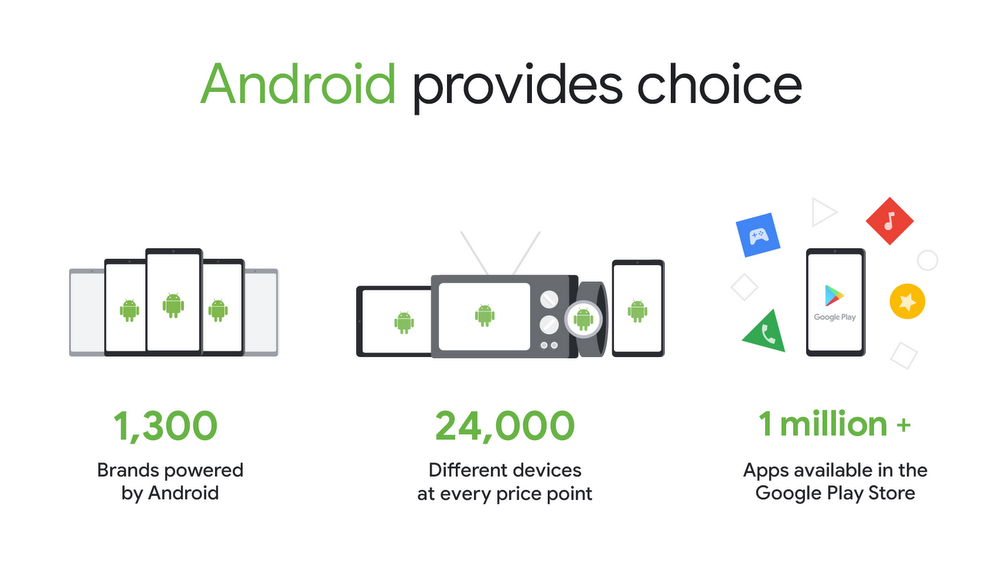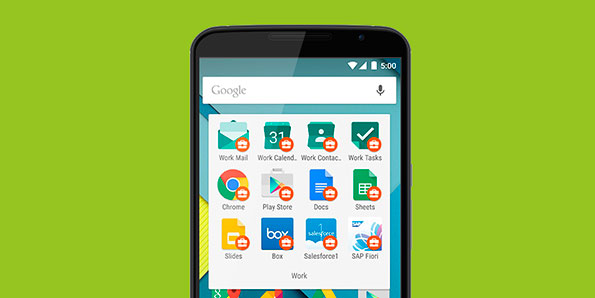
In July, Google imposed a € 4.3 billion fine on Google’s mobile operating system, Android, for violating European competition laws. The European Commission has announced a penalty for violating the European Union competition law by forcing Google to bundle Android with its smartphone.
At the time, the European Commission demanded that smartphone makers install Google search apps and chrome in order to license the Google Play Store. And prohibiting the sale of Android devices without Android apps, Google said it is strengthening its search engine control.
The European Commission said it was a violation of European Union competition law and ordered it to pay a fine or pay 5% of the global average sales of Google’s parent company’s alphabet. The European Commission said more than half of the world’s Internet traffic comes from mobile devices, including smartphones, and smartphones are changing the lives of millions of Europeans. But Google has forced Android phone makers and mobile operators to connect their smartphone traffic to a Google search engine, he said.
Google CEO Sunda Picha said in a statement that Android has not reduced its options, but rather has been increasing. He protested that the European Commission’s decision completely ignored the fact that Android is competing with iOS and forgot how many options Android offers to Android device makers and mobile operators. He said Google has invested heavily in Android over the last 10 years and has been distributing Android platform and Google App Suite free of charge to manufacturers and mobile operators, as well as efficiency, as well as developers and consumers.

He protested that the EU’s decision is to break the balance of the Android ecosystem and deny the business model supporting Android. Of course, Google imposed a € 242 million fine in the EU in 2017 because of the anti-competitive nature of Google’s search results, which are always displayed in Google search results with overwhelming share.
Anyway, according to the EU’s prior decision, Google has said it will charge licensing fees for terminals equipped with standard Google apps, including Google Play, which costs $ 40 per unit.
As is well-known, Google’s Android is an open-source operating system that is available for free. However, the Android terminal has an app built by Google. The reason for the violation of the antitrust laws is the way the app is provided.

As a result, Google has said it will pay for its licenses if it does not want its apps to be standard on Android devices, Of course, if you do not install an app like Google Play, you may feel uncomfortable installing other third-party apps.
For this reason, if you are an OEM manufacturing an Android device in the EU in the future, you should choose not to install the Google app on your phone, install only Android, or install a Google app with a license fee.
Google said it did not disclose the licensing costs correctly, but according to foreign sources, it will cost about $ 40 per Android device, as mentioned earlier. The cost of licensing fees will be applied to devices activated on or after February 1 next year, depending on the country or device type.
There are three main types of payment fees. The most expensive ones are the UK, Sweden, Germany, Norway, etc. In these countries, if you load a Google standard app on a pixel terminal with 500 ppi or higher, you have to pay a license fee of $ 40. If the pixel density is between 400 and 500ppi, it will be $ 20. Countries with the lowest licensing costs will cost $ 2.5 per licensed device.
Smartphones also cost licenses based on pixel density. Samsung Electronics’ Galaxy S9 and other products, such as the pixel density of 570 ppi high license costs. Unlike smartphones, other licensing principles apply to tablets. The tablet is said to cost $ 20 per device. Of course, depending on the manufacturer, you can negotiate license fees separately from Google, but the cost of licensing itself is unlikely to change significantly.
Of course, OEMs may not have to pay for licensing fees. Google has signed a separate agreement to cover some or all of the license fees for companies that install Chrome apps. However, Google is refusing to comment on the deal.
In addition, Google has also signed an agreement to pay OEMs with standard Chrome apps with some incentive for browser search revenues, and that they do not pay any incentives for non-Chrome apps.

